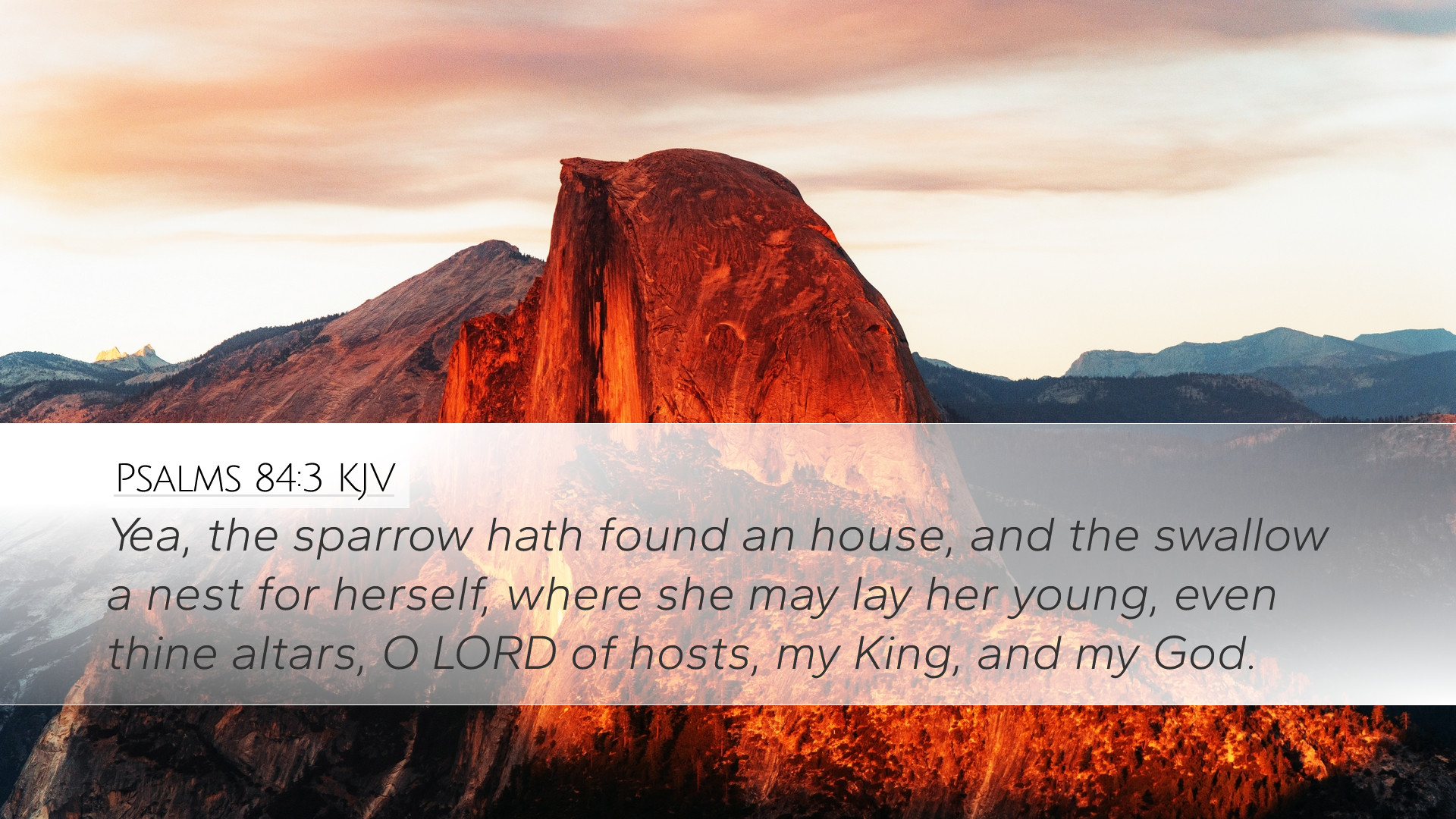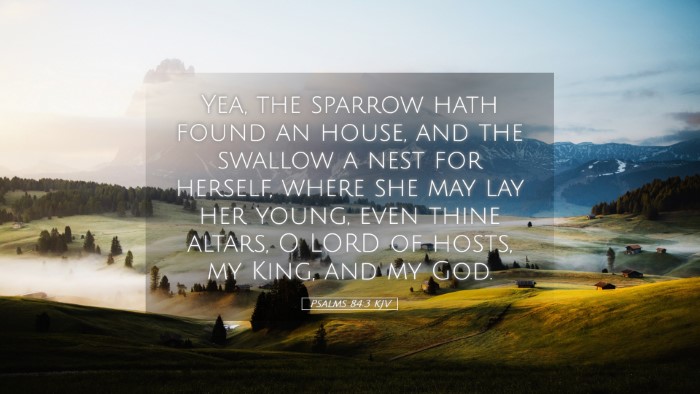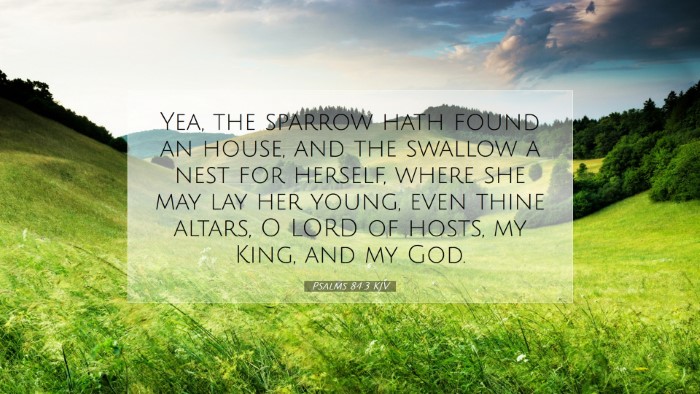Commentary on Psalms 84:3
Psalms 84:3: "Yea, the sparrow hath found an house, and the swallow a nest for herself, where she may lay her young, even thine altars, O Lord of hosts, my King, and my God."
Introduction
This poignant verse from Psalm 84 expresses a deep yearning for the presence of God, as well as a metaphor for the security and peace found in His house. The reference to the sparrow and the swallow highlights God's providence, as these birds find a place to rest and nurture their young in His presence. The verse invites us into a deeper understanding of the relationship between humanity and divinity, and it calls attention to the significance of worship in a believer's life.
Textual Analysis
Imagery of the Birds
Matthew Henry emphasizes the beauty of this metaphor. He notes that the sparrow and swallow, simple birds, find a home “near God’s altars," which reflects a longing for the sanctuary of the Lord. It suggests that these creatures, though insignificant, are secure in God's presence.
Albert Barnes reinforces this nuance by suggesting that the choice of these two birds indicates an ideal resting place for the soul: a location of refuge and tranquility. The fact that they have nests signifies the need for stability, which is found in communion with God.
Theological Implications
God as a Place of Refuge
This verse teaches us about God as a refuge. Adam Clarke interprets the act of the birds nesting at the altar as emblematic of the desire of the faithful to find their home in God's presence. This imagery establishes that God’s house is not merely a physical space but a spiritual sanctuary where one can flourish and grow.
Moreover, the act of laying young signifies the importance of nurturing, reminding us that the life we construct in God’s presence becomes a legacy of faith. As the sparrow and swallow seek shelter for their progeny, so too do believers desire a foundation of faith for future generations.
Personal Application
Desire for God’s Presence
The longing portrayed in this verse speaks to every believer's heart. Matthew Henry reflects on how those who truly seek God's presence can identify with the sparrow's desire for a nest. There is a universal yearning for stability amidst the chaos of life, and only in God's house can one find true peace.
Albert Barnes elaborates further, discussing that the sparrow's consistent presence by the altar encourages believers to be intentional in their worship, illustrating the importance of seeking God in every season of life. This desire should resonate in our own walks with God—do we intentionally create space for God's presence?
Community and Worship
Setting of the Altar
The mention of “thine altars” points to the community and the corporate aspect of worship. According to Adam Clarke, the altars symbolize the covenant relationship between God and His people. In communal worship, we find strength and encouragement, just as the birds find their home in close proximity to the altar, sharing in God's presence collectively.
Matthew Henry stresses the collective nature of worship, arguing that the Church is a living organism where each member contributes to a shared experience of God’s love and grace—a place where the faithful can gather, pray, and nurture one another in faith.
Conclusion
Psalms 84:3 encapsulates the essence of faith expressed through imagery that resonates deeply with God’s people. As we reflect on the sparrow and the swallow, we are reminded of God's provision and the sacred nature of His presence. The earnest longing to dwell in His presence reflects not just a desire for comfort, but an acknowledgment of our deep dependency on Him.
Ultimately, this passage calls us to actively seek a relationship with God, aspiring to create a dwelling place for ourselves and succeeding generations in the richness of His house. Each believer is invited to accept God's invitation to find refuge, nourishment, and community in the sanctuary of His presence.


